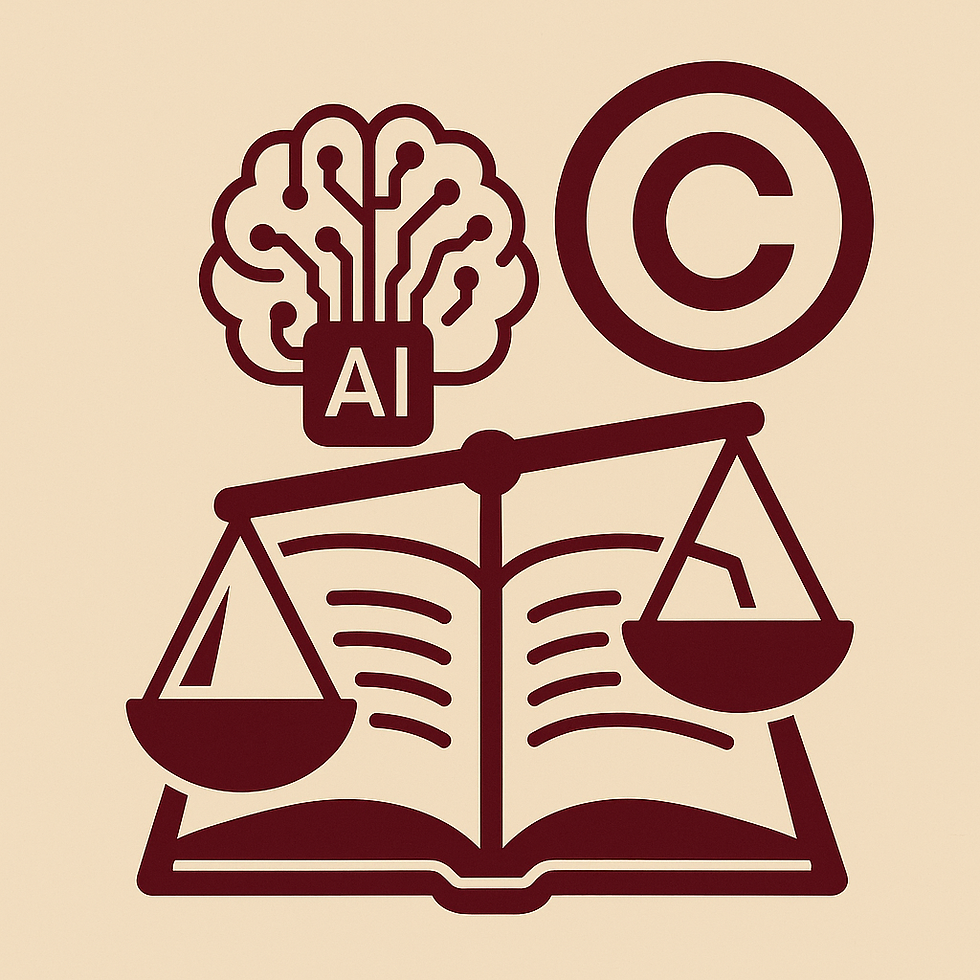Meta’s Fair Use Win in Kadrey v. Meta Offers Limited Comfort for AI Training—and Caution for Florida Businesses
- Mark Addington
- Aug 7, 2025
- 2 min read
Updated: Aug 8, 2025

On June 25, 2025, Judge Vince Chhabria dismissed thirteen authors’ core infringement claim against Meta Platforms, finding that copying their books to train Llama models could qualify as fair use. The ruling came in cross-motions for partial summary judgment in Kadrey v. Meta Platforms, Inc., No. 23-cv-03417-VC (N.D. Cal. June 25 2025).
Key points from the forty-page opinion
Judge Chhabria accepted that Meta’s training copies were “highly transformative,” but he treated that finding as only one piece of the puzzle. The decisive issue was the economic impact. Meta offered expert evidence showing no measurable harm to book sales. The plaintiffs, by contrast, supplied “speculation” rather than data. Without proof that Llama outputs had already displaced or were likely to displace the market for the authors’ books, the court held that the fourth fair-use factor favored Meta, which tipped the overall balance in Meta’s favor. The judge stressed that a stronger evidentiary record on market harm could have changed the outcome and observed that future plaintiffs might prevail where records are “better-developed” on this point. He also rejected the notion that denying fair-use protection would halt AI innovation, remarking that developers could simply license copyrighted works when necessary
Two claims still survive. The court will address a separate Digital Millennium Copyright Act count in a forthcoming order, and an allegation that Meta unlawfully distributed works while torrenting the training data remains for discovery. Thus, the case is far from over, and the ruling does not bless all uses of copyrighted text for AI training.
Comparison with the Bartz v. Anthropic ruling
Judge Chhabria distinguished Judge Alsup’s earlier order in Bartz v. Anthropic PBC, which gave great weight to transformative purpose and treated market harm as speculative. In Kadrey, the court held that market substitution concerns carry more weight than transformative use when generative models can “enable the creation of a potentially endless stream of competing works.” The split illustrates that fair-use outcomes will hinge on fact development and the individual judge’s reading of the record.
Implications for Florida developers, publishers, and corporate users
Florida companies that build or fine-tune large-language models should document their fair-use analysis and preserve evidence on market effects. The ruling suggests that courts will look for empirical proof, not predictions, that training data copying causes or avoids economic harm. Content owners contemplating litigation must be prepared to quantify lost sales or show imminent displacement. Businesses that rely on third-party AI systems should monitor licensing terms and audit outputs for close paraphrases that could revive infringement exposure even after Kadrey.
Compliance takeaways
Conduct an inventory of copyrighted datasets used in any AI initiative and confirm licensing or fair-use defenses. Track the remaining proceedings in Kadrey and similar cases for guidance on DMCA and distribution theories. Finally, update vendor agreements to require evidence-based assurances that training data were lawfully acquired and that model outputs will not reproduce protected expression.
The Kadrey opinion offers Meta a reprieve, but it is not a blanket approval for unlicensed AI training. The decision turns on the plaintiffs’ failure to prove market harm and leaves ample room for different results when that evidence is available. Florida enterprises should view the ruling as a prompt to strengthen documentation, not as a green light to skip licenses.




Comments